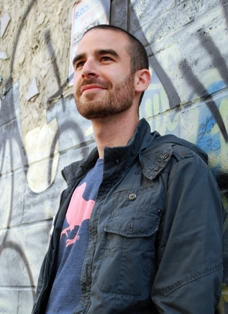The 2011 Ten to Watch: Nathan Vella

Each year, Playback puts out a call for the industry to recommend its best and brightest up-and-coming talent for our 10 to Watch list. With over 100 nominations this year, including only 10 seemed impossible — virtually every nominee deserved to be on the list. The selection represented here is the culmination of careful consideration by Playback‘s editorial jury, in association with film, TV and interactive industry execs and organizations. Having already made a splash, these talented 10 are poised for great things.
Nathan Vella / co-founder and president, Capybara Games
Hometown: Waterloo, ON
Big break: Critter Crunch
Upcoming projects: Project Grindstone (working title)
The buzz: With Vella at the helm, Toronto-based independent game developer Capy has gone from licensed titles (Cars, American Idol) to reaching its goal of developing original IP. The Ryerson University film school grad kicked off his career as an editor at prodco Marblemedia before co-founding Capy in 2003. Since then, he and his team have steadily built an international reputation launching attention-getting and successful projects such as Critter Crunch, Might & Magic: Clash of Heroes and most recently, Superbrothers: Sword & Sworcery EP.
What has made your approach to indie game development so successful?
People are always talking about how to hit these wider demos, but we weren’t trying to do that with [a game like] Sworcery. My mentality is to get 100% of the attention of 10% of people, rather than [the other way around]; I’d rather have a loyal interest from a smaller group than a few people in a giant pool. We knew we weren’t going to be Angry Birds, but we thought if we could provide something genuine and soulful for 50,000 people, then the game would be a real success. We’re about to hit a quarter-million in sales.
Did your experience in film and TV influence your work in the games business?
I think people try to make more correlations between film, TV and games than there actually are. Games are a 120-mile-per-hour head-on collision between creative and technical — you have to work together to turn these crazy ideas into lines of code or coloured pixels. The best games are made by the best teams, not the best individuals.
What’s with all the buzz around indie games and development these days?
It’s a great way to make projects: it’s inexpensive and provides a lot of opportunity on the business side. If you can make a game for $500,000 or $1 million and that game can hit three platforms, it doesn’t need to sell that many units to be profitable. It will make the digital landscape more competitive — everyone has to step up their game. A relatively small investment in gaming can guarantee more success than a large investment in other industries. I want to continue to prove that it’s not as risky as it sounds.











 The definitive CDN broadcast and production resource.
The definitive CDN broadcast and production resource.










